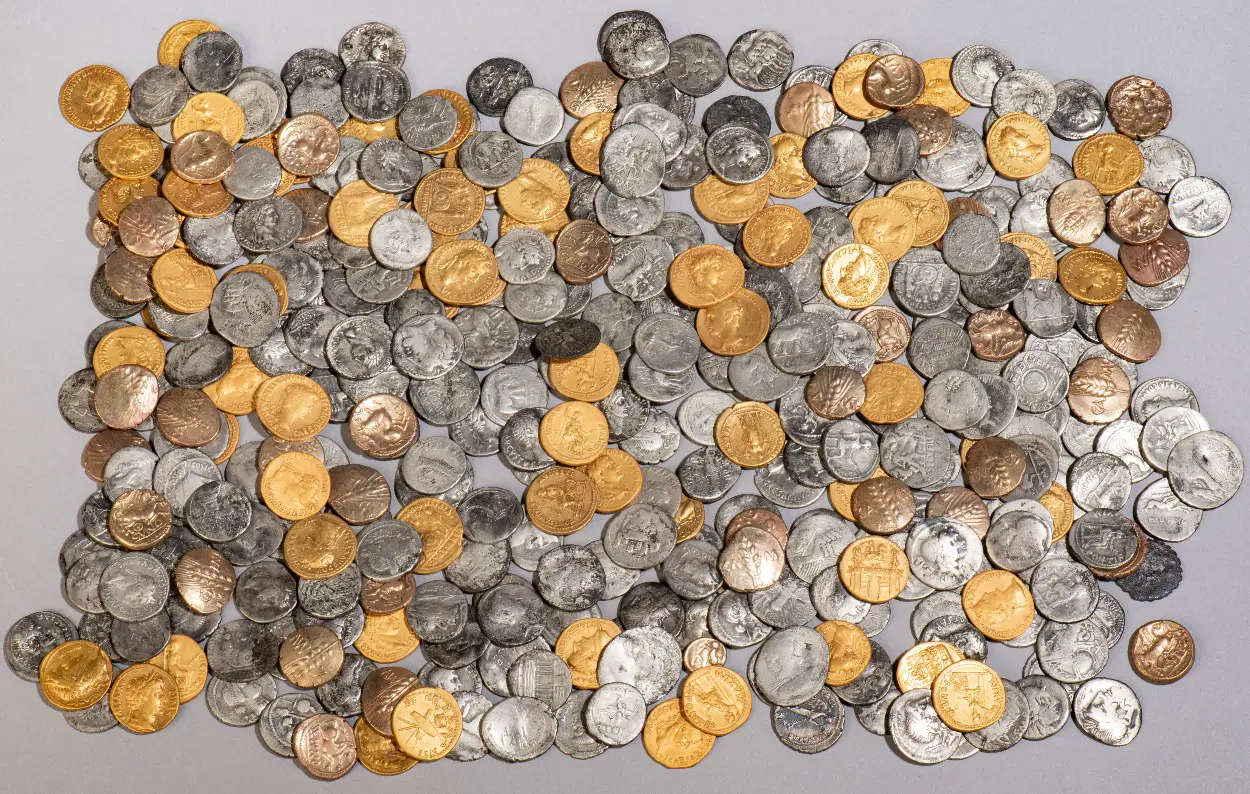In the autumn of 2023, while conducting a metal detecting survey in the municipality of Bunnik, Gert-Jan Messelaar and Reinier Koelink discovered a significant hoard of Roman-era coins.
Upon notifying the Archaeology Reporting Point of Landschap Erfgoed Utrecht, a team from the Cultural Heritage Agency of the Netherlands (RCE) conducted an excavation of the hoard site in collaboration with the two finders.
A total of 404 silver and gold coins were uncovered, featuring a rare mix of Roman and British currency. Among the coins are 44 gold staters bearing the name of Cunobelinus, a king in pre-Roman Britain, who the Roman historian Suetonius called the “King of the Britons”.
A closer examination of the staters shows the name of Cunobelinus written in Latin letters: “CVNO[BELINVS]”.
Cunobelinus controlled a substantial portion of southeastern Britain, including the territories of the Catuvellauni and the Trinovantes. From numismatic evidence, he had coins bearing his name minted in both Camulodunum (Colchester, capital of the Trinovantes) and Verlamion (later the Roman town of Verulamium, now modern St Albans), capital of the Catuvellauni.

Archaeologists suggest that the coins are linked to the early Roman conquest of Britain under Emperor Claudius, and were likely brought to Bunnik by returning Roman soldiers as spoils of war and part of their pay from the first campaigns,
According to a press release by the RCE: “This discovery represents the largest coin hoard from the Roman period ever found in the province of Utrecht, and the first mixed Romano-British hoard on the European mainland. A comparable find has only been recorded in Britain.”
The Roman coins in the hoard feature various emperors, including coins of Emperor Claudius. The majority of the hoard consists of 288 silver coins (denarii, singular denarius), minted between 200 BC and 47 AD.
Among them are coins issued by Julius Caesar and one depicting Juba, the king of Numidia (modern Algeria). In total, 72 Roman gold coins (aurei, singular aureus) were also found, dating from 19 BC to AD 47.
Header Image Credit : RMO
Sources : Cultural Heritage Agency of the Netherlands (RCE)





